Have you ever wondered how intermittent fasting affects your metabolism and fat burning? Intermittent fasting is a dietary plan that involves eating at certain times and refraining from eating completely during specific periods. Not only can it help with weight loss, but it can also have positive effects on various health conditions. There are different methods of intermittent fasting, including daily fasting, the 5:2 fasting plan, alternate day fasting, and extended fasting. Research has shown that intermittent fasting can lead to weight loss, improved cholesterol levels, better blood glucose control, and improved circadian rhythms. It’s important to note that intermittent fasting is not recommended for certain individuals, such as children and teens, pregnant or breastfeeding women, people with diabetes or blood sugar disorders, and those with a history of eating disorders. By switching the body into a state called ketosis, intermittent fasting can affect metabolism by prompting the body to burn fat for energy. However, before starting an intermittent fasting plan, it is crucial to make mindful food choices and consult a doctor for personalized advice on your health suitability.
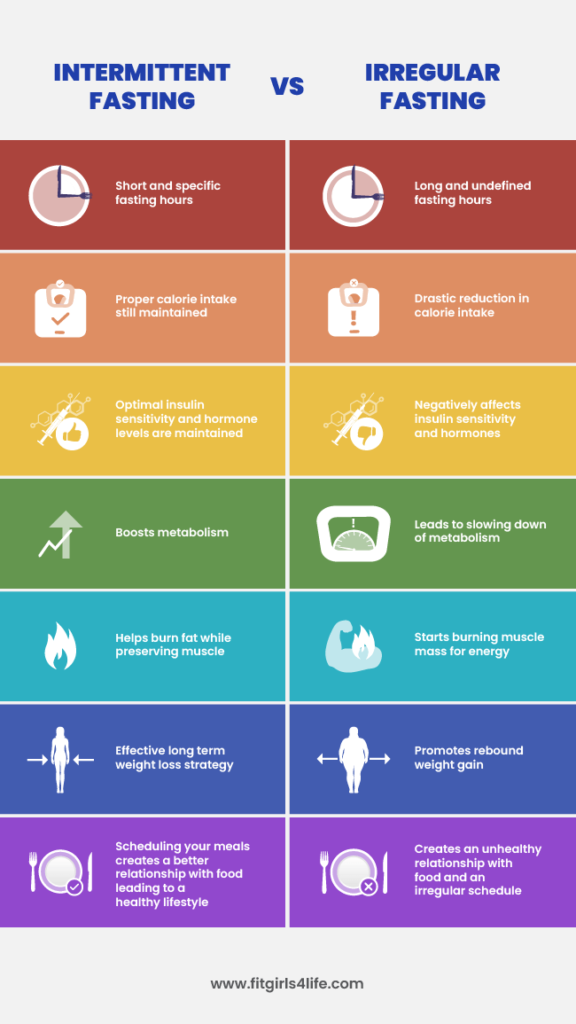
This image is property of www.fitgirls4life.com.
Methods of intermittent fasting
Daily fasting
Daily fasting is a popular method of intermittent fasting, where you restrict your eating to a specific window of time each day. The most common approach is the 16/8 method, which involves fasting for 16 hours and limiting your eating to an 8-hour window. For example, you might choose to eat between 12 PM and 8 PM, and then fast for the remaining 16 hours.
5:2 fasting plan
The 5:2 fasting plan involves eating normally for five days of the week and then significantly reducing your calorie intake (500-600 calories) for the remaining two days. These two days are not consecutive, and it’s important to choose non-consecutive days to allow your body to properly adjust and recover.
Alternate Day fasting
As the name suggests, alternate day fasting involves fasting every other day. On fasting days, you may consume little to no calories, while on non-fasting days, you can eat normally. Some variations of alternate day fasting allow for a limited calorie intake on fasting days, typically around 500 calories.
Extended fasting
Extended fasting refers to longer periods of fasting, usually spanning more than 24 hours. This can range from 24-hour fasts to multi-day fasts, where you may only consume water, tea, or other non-caloric beverages. Extended fasting should be approached with caution and ideally under the guidance of a healthcare professional.
Benefits of intermittent fasting
Weight loss
Intermittent fasting has gained popularity as a weight loss tool, and for good reason. By reducing calorie intake during certain periods, intermittent fasting can create a calorie deficit, leading to weight loss. Additionally, fasting has been shown to increase metabolism and fat burning, further contributing to weight loss goals.
Improved cholesterol levels
Research has indicated that intermittent fasting can lead to improvements in cholesterol levels. Specifically, it has been shown to lower LDL cholesterol levels, often referred to as the “bad” cholesterol. This can have a positive impact on cardiovascular health and reduce the risk of heart disease.
Better blood glucose control
Intermittent fasting has also been associated with improved blood glucose control. By limiting the hours in which you consume food, fasting can help regulate blood sugar levels and increase insulin sensitivity. This can be particularly beneficial for individuals with insulin resistance or type 2 diabetes.
Improved circadian rhythms
Our circadian rhythms, the natural cycles that regulate our sleep-wake patterns and various physiological processes, can be influenced by intermittent fasting. Research suggests that fasting can help reset our circadian clocks, leading to improved sleep quality and overall circadian rhythm balance. This can have a positive impact on various aspects of health, including mood, metabolism, and cognitive function.
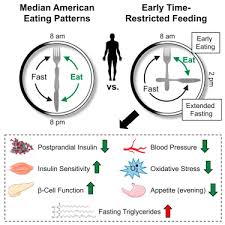
This image is property of drsue.ca.
Who should not practice intermittent fasting
Children and teens
Intermittent fasting is generally not recommended for children and teenagers, as they have unique nutritional needs for growth and development. Restricting their calorie intake or fasting for extended periods may interfere with their nutrient requirements.
Pregnant or breastfeeding women
Pregnant and breastfeeding women need extra calories and nutrients to support the health and development of their baby. Intermittent fasting can deprive them of these essential nutrients, and it’s important for them to prioritize their own and their baby’s nutritional needs.
People with diabetes or blood sugar disorders
Individuals with diabetes or blood sugar disorders should exercise caution when considering intermittent fasting. Changes in eating patterns and fasting can impact blood sugar levels, and it’s important for them to work closely with a healthcare professional to ensure proper management of their condition.
Those with a history of eating disorders
Intermittent fasting may not be suitable for individuals with a history of eating disorders, as it can potentially trigger disordered eating patterns or exacerbate existing issues. It’s important to prioritize mental and emotional well-being when considering any dietary changes.
Effect of intermittent fasting on metabolism
Switching the body to ketosis
One of the significant effects of intermittent fasting is the switch to a state called ketosis. During periods of fasting, when glucose reserves are depleted, the body starts utilizing stored fat as a source of energy. This metabolic shift leads to the production of ketones, which are then used by the body as an alternative fuel source.
Burning fat for energy
Intermittent fasting promotes fat burning for energy by reducing insulin levels and increasing hormone-sensitive lipase (HSL) activity. HSL is an enzyme that breaks down stored triglycerides (body fat) into free fatty acids that can be utilized for energy. As a result, the body becomes more efficient at burning fat, leading to weight loss and improved body composition.
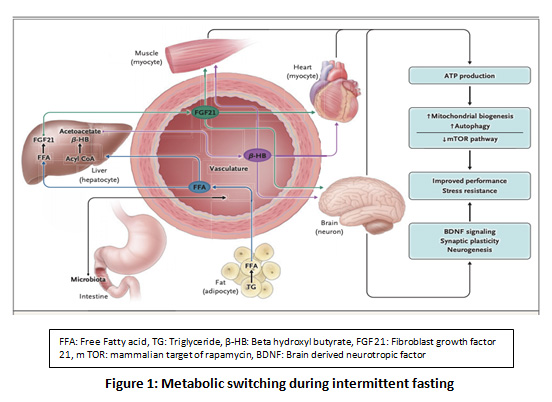
This image is property of biomedpharmajournal.org.
Understanding ketosis
Ketosis is a natural metabolic state characterized by elevated ketone levels in the blood. It occurs during periods of fasting or low carbohydrate intake when the body transitions from using glucose as its primary fuel source to using stored fat instead. This metabolic shift can have various benefits, including increased fat burning, improved mental focus, and reduced hunger.
The role of hormones in fat burning
Insulin
Insulin is a hormone produced by the pancreas that plays a crucial role in regulating blood sugar levels. When we consume carbohydrates, insulin is released to help transport glucose into the cells for energy or storage. During periods of fasting, insulin levels decrease, allowing the body to tap into stored fat for energy.
Growth hormone
Growth hormone (GH) is a hormone responsible for stimulating growth and repair in the body. Intermittent fasting has been shown to increase growth hormone levels, which can help preserve lean muscle mass and promote fat burning.
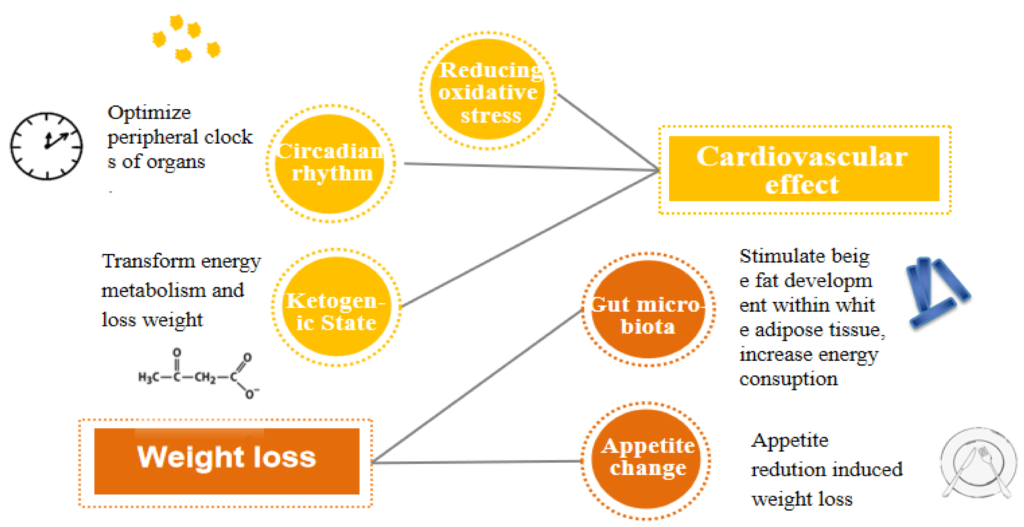
This image is property of www.mdpi.com.
Impact of intermittent fasting on insulin sensitivity
Intermittent fasting has been shown to improve insulin sensitivity, which is the body’s ability to respond to and utilize insulin effectively. By reducing insulin resistance, intermittent fasting can help regulate blood sugar levels and decrease the risk of developing type 2 diabetes. Improved insulin sensitivity also supports overall metabolic health and weight management.
Research on intermittent fasting and fat burning
Studies on human subjects
Numerous studies have investigated the effects of intermittent fasting on fat burning and weight loss in human subjects. These studies have consistently shown that intermittent fasting can lead to significant reductions in body weight and body fat percentage. Additionally, intermittent fasting has been associated with improvements in markers of metabolic health, such as insulin sensitivity and cholesterol levels.
Animal studies
Animal studies have also provided valuable insights into the effects of intermittent fasting on fat burning. These studies have demonstrated that intermittent fasting can lead to increased fat oxidation and improved metabolic flexibility. Additionally, animal research has shown that intermittent fasting can have anti-aging effects and improve overall lifespan.
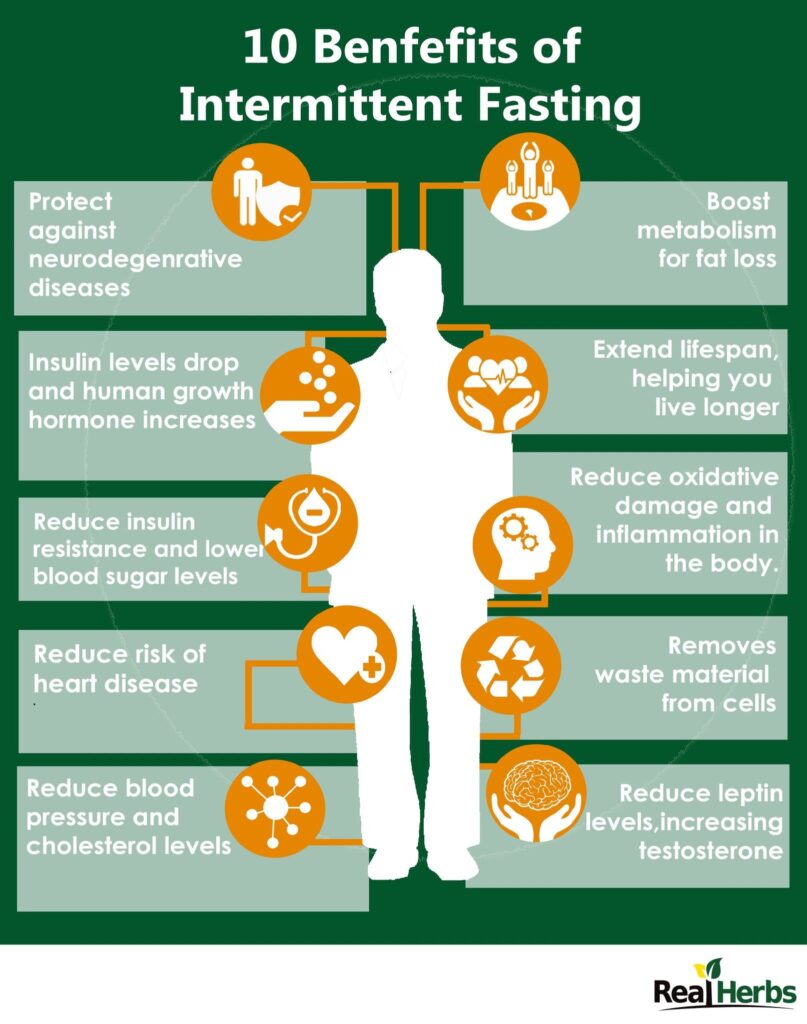
This image is property of www.ultimatepersonaltrainingvancouver.com.
Factors influencing fat burning during intermittent fasting
Duration of fasting
The duration of the fasting period can influence the extent of fat burning during intermittent fasting. Longer fasting periods, such as extended fasting or multi-day fasts, tend to have a more significant impact on fat burning as the body has more time to deplete glucose stores and switch to using fat as its primary fuel source.
Caloric intake during feeding window
Although intermittent fasting restricts eating to specific time windows, caloric intake still plays a role in fat burning. Consuming nutrient-dense, whole foods during the feeding window can provide the body with essential nutrients while supporting fat burning and overall health. It’s important to focus on quality, not just quantity, of the food consumed.
Physical activity level
Physical activity can enhance fat burning during intermittent fasting. Engaging in regular exercise, particularly aerobic and resistance training, can help preserve lean muscle mass and boost metabolism. Exercise also promotes fat oxidation and improves overall body composition, contributing to fat loss goals.
Optimizing fat burning during intermittent fasting
Choosing nutrient-dense foods
During the feeding window, prioritize nutrient-dense foods that provide essential vitamins, minerals, and macronutrients. Incorporate plenty of fruits, vegetables, lean proteins, whole grains, and healthy fats into your meals. Avoid processed foods, sugary snacks, and excessive alcohol consumption, as they may impede fat burning and overall health.
Maintaining hydration
Staying hydrated is essential for overall health and optimal fat burning. Aim to drink an adequate amount of water throughout the day, especially during fasting periods. Herbal teas and sugar-free beverages can also be consumed to stay hydrated, but be mindful of added sugars or artificial sweeteners.
Incorporating exercise
Regular exercise is a key component of maximizing fat burning during intermittent fasting. Engage in a combination of cardiovascular exercises, such as walking, jogging, or cycling, and strength training exercises to build and maintain lean muscle mass. Aim for at least 150 minutes of moderate-intensity aerobic activity and two or more days of strength training per week.
Managing stress levels
Chronic stress can hinder fat burning and overall health. Practice stress management techniques, such as mindfulness meditation, deep breathing exercises, or engaging in hobbies that bring joy and relaxation. Prioritize self-care and ensure you get adequate rest and quality sleep to support overall well-being.
In conclusion, intermittent fasting is a dietary approach that can provide numerous health benefits, including weight loss, improved cholesterol levels, better blood glucose control, and enhanced circadian rhythms. However, it’s important to consider individual factors and consult with a healthcare professional before starting an intermittent fasting plan. By making informed choices, being mindful of nutrient intake, and incorporating regular exercise, you can optimize fat burning and achieve your health and wellness goals.
